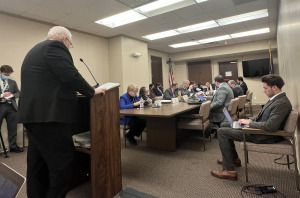Indiana House backs dropping state’s handgun permit law
The proposal, which would loosen Indiana’s already lenient firearms restrictions, passed on a largely party-line 63-29 vote despite the opposition of several major law enforcement organizations.





